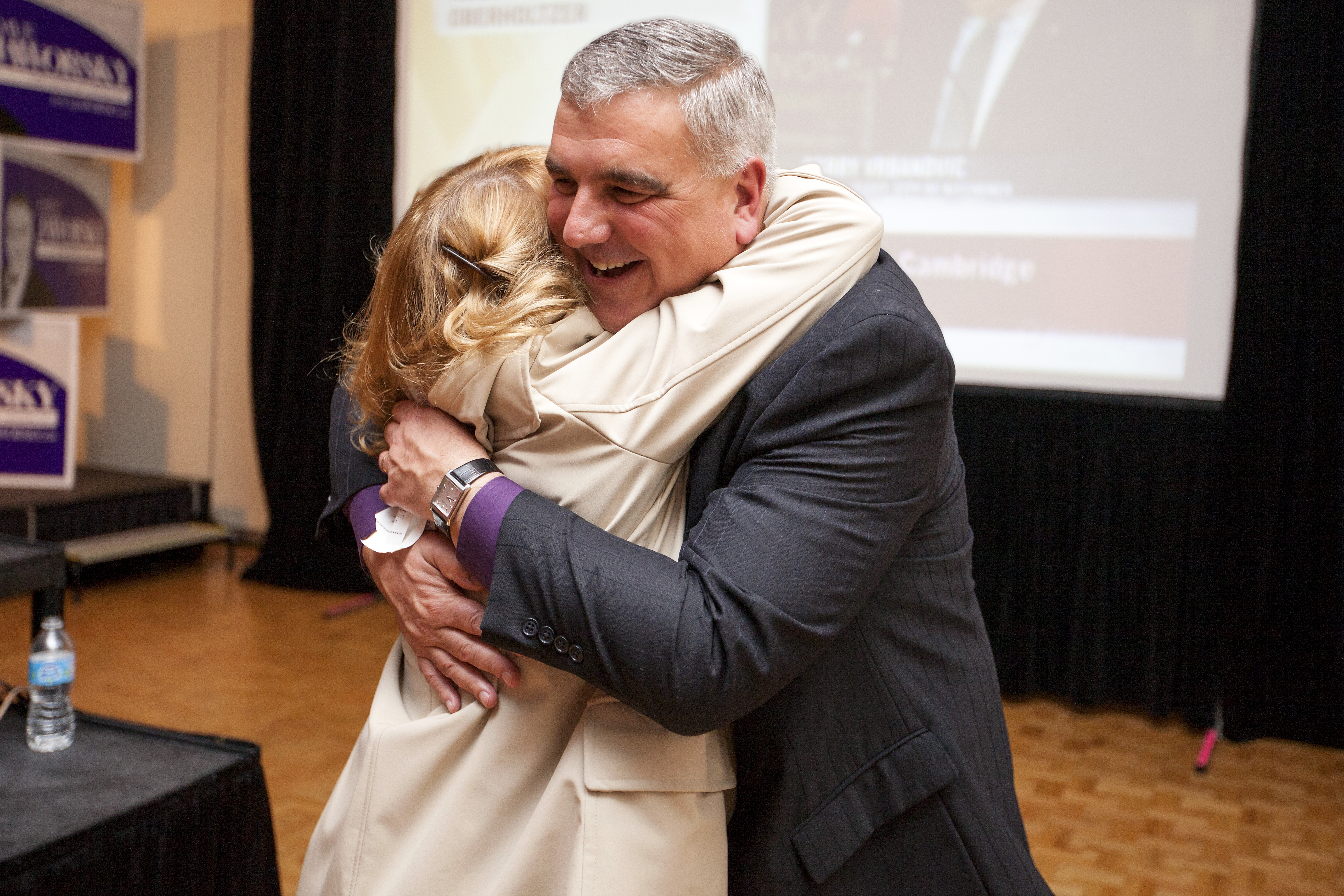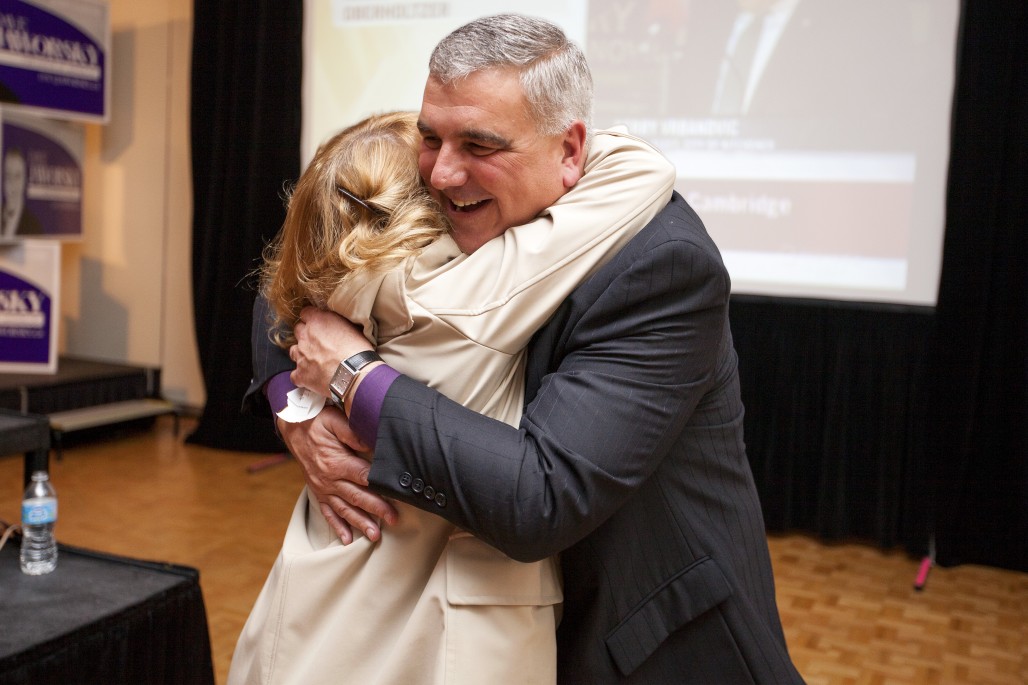Jaworsky claims victory in Waterloo

Gaining roughly 55 per cent of the vote, Dave Jaworsky will take office as Waterloo mayor Dec. 1

On Monday, people across Ontario took to the polls to elect new leaders in a round of municipal elections. Brenda Halloran, who had served as Waterloo’s mayor since 2006, did not seek re-election, so residents had four new faces to choose from.
Taking roughly 55 per cent of the vote was Dave Jaworsky, receiving over 14,000 votes.
Runner-up Erika Traub took roughly 25 per cent with 6,292 votes, Dave MacDonald received approximately 17 per cent with 4,432 votes and Rami Said was just under three per cent with 696 votes. Waterloo also saw a voter turnout of around 36 per cent, down from the previous election’s 40 per cent in 2010.
“It’s just been an awesome ride,” said Jaworsky on election night. “And to see results like that, it’s an incredible feeling.”
Jaworsky largely campaigned on the issues of economic prosperity and development, primarily working with other mayors and regional councillors to create a Waterloo Region economic development strategy.
“We need to get the three mayors of the cities together, along with the four mayors of the townships, as well as the regional chair and councillors in creating an economic strategy,” he said. “Once you have a strategy, you work the strategy in determining where you want to go to get new business.”
Jaworsky also intends to use the economic development strategy to continue the arrivals of business heavyweights from around the country. Recently, Waterloo has seen investment banker, and current judge of the show Dragons’ Den, Michael Wekerle purchase old Blackberry property, intent on bringing new projects to the city. Jaworsky said he believes this is a perfect example of “someone who sees the value of Waterloo from the outside.”
“Sometimes us living here in Waterloo, we don’t see what a great place we are to live in, and I think that’s where entrepreneurship and the economic development strategy really make sense, because people are looking to do business in Waterloo,” said Jaworsky.
Another topic that came up often, and largely served as a point of contention for some candidates, was transit. Transit’s hot button topic, the ION light rail transit project, served as a divider between Waterloo’s mayoral candidates.
Jaworsky sat with fellow mayoral candidates Said and Traub as a supporter of the ION LRT system, but also stressed the importance of expanding all forms of local transit to meet the demands of the future.
“It is all about moving people. More roads and cars means more gridlock,” said Jaworsky. “We need to ensure we have an effective transit system. For now that’s GRT, soon the ION, but also the all-way two-way GO service and our airport — all need to be embraced as different forms of transportation, along with alternative forms like bike lanes and walking trails.”
Another issue that frequently arose, especially during the two candidates’ debates on the city’s university campuses, was student involvement. All candidates stressed the need to have more students involved in municipal politics and championed their proposals to allow for more student involvement.
Jaworsky, a graduate of the University of Waterloo himself, argued the necessity of a tighter relationship between city hall and the students’ unions of the two universities as a way to foster student interest.
“I think really what we need to do as mayor is focus on working with the student unions and federations directly, to make sure we are in tune with the needs of the students,” he said. “I think that’s what will impress the students, is showing that we’re involved.”
Jaworksy will take the reins as mayor on Dec. 1. He is one of many newly elected mayors across Southwest Ontario who is facing their first foray into elected office.
“I think Waterloo really wants a Waterloo-centric person, and that’s the mayor I intend to be,” he said.

